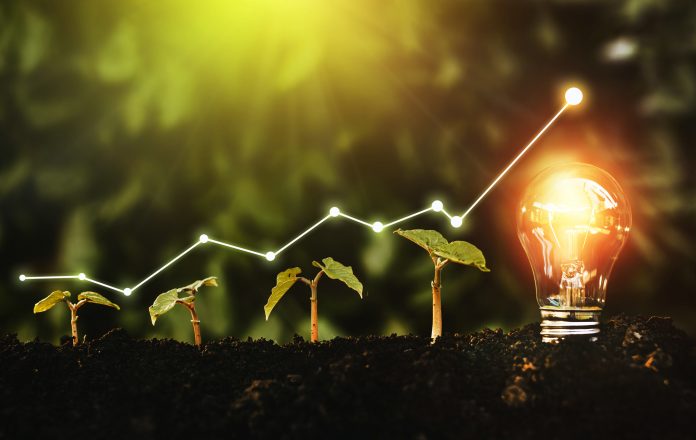“We’re building a clean energy future,” says President Joe Biden.
Who is “we”?
Well, you pay for it.
He and his “green” cronies do most of the building.
Lately, they’re pouring more of your money into “renewable energy.” They promise to give us “carbon-free power” from the sun and wind.
My new video illustrates some problems with that, using scenes from a new documentary series called “Juice: Power, Politics and the Grid.”
Political scientist Roger Pielke Jr. notes, “It’s quite intuitive for people to understand that there’s a lot of power in solar energy. We feel the wind. The idea that you can get something for nothing, people find enormously appealing.”
Especially in California, where politicians now require all new homes to have solar panels, all new cars sold in 2035 to be zero-emission, and all the state’s electricity to come from carbon-free resources by 2045.
They’re getting results, but not good ones: California’s cost of electricity increased three times faster than in the rest of America.
People in Washington State pay about 11 cents per kilowatt-hour. In Oregon, 13 cents. In California, now almost 30 cents.
Do they at least get reliable energy for that? No.
The big problem with wind and solar power, of course, is that they don’t work when the wind doesn’t blow or the sun doesn’t shine. Sometimes that happens when people most want heat or AC.
Increased use of “renewables” is why blackouts are more common in California. Bloomenergy says there were over 25,000 in 2019 — thousands more than the previous year.
“We failed to predict and plan,” said Gov. Gavin Newsom. Right.
Instead, they embraced unscientific green fantasies.
Requiring all new homes to have solar panels is a big reason California has the most expensive housing in America. The average house costs almost $800,000.
If you can afford that, you get government money for generating solar power. But the handout goes mostly to the rich. Poorer people are more likely to rent.
On top of that, the subsidy is inefficient.
“As their solar panels produce power during the day when the sun is up,” explains electrical engineer Lee Cordner, “They’re able to sell the excess power … into the grid exactly when the grid doesn’t need it. The grid is then inundated with solar power and can’t use it all. Nonetheless, they get paid a very high price for that power.”
Nice for homeowners.
Taxpayers pay for rich people to have a highly subsidized solar system.
I put panels on my house partly because of a tax credit.
But I don’t delude myself by thinking that solar power will measurably reduce climate change, or that wind power is especially green.
“Just to produce one turbine, we have to extract 900 tons of steel, 2,500 tons of concrete, and 45 tons of non-renewable plastic,” explains ecologist Merlin Tuttle. “Then we’ve got to transport that and burn fuel, getting it all carried across the world. None of these things that go into a turbine are renewable.”
And they wear out. Turbines now get shut down in just 10 years for maintenance. Maintenance costs almost as much as a new turbine, but it’s worth it to “green” companies because of government handouts.
Biden announced an $11 billion subsidy to “bring clean energy into rural communities.” That mostly encouraged people to put wind and solar in inappropriate places.
Solar power makes sense in America’s south, and other sunny places. But an above average number of solar subsidies go to Minnesota.
In the documentary, a Minnesota resident laughs and says, “The state is about to give me a whole bunch of subsidies to … build solar in scenic, sunny Minnesota.”
The “Juice” series highlights the stupidity of government throwing money at “green” schemes pushed by the politically connected.
When solar and wind become more efficient, they’ll be cheaper and people will adopt them on their own.
Politicians should stop their destructive meddling.
You can watch the full documentary at JuiceTheSeries.com.
Every Tuesday at JohnStossel.com, Stossel posts a new video about the battle between government and freedom.
COPYRIGHT 2024 BY JFS PRODUCTIONS INC
For more from Environment and Climate News.
For more from The Heartland Institute.


























